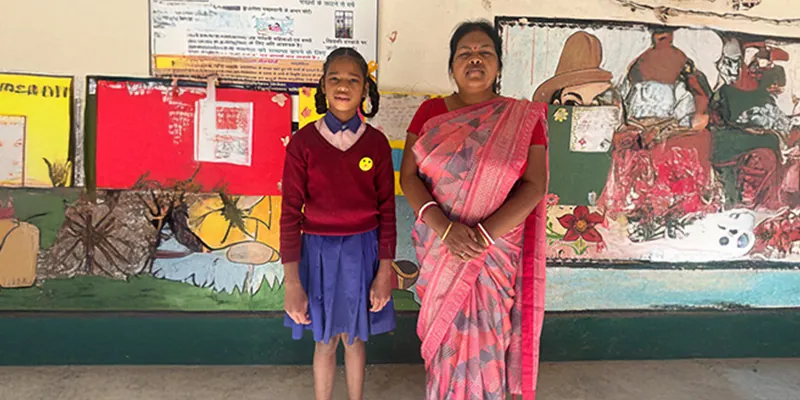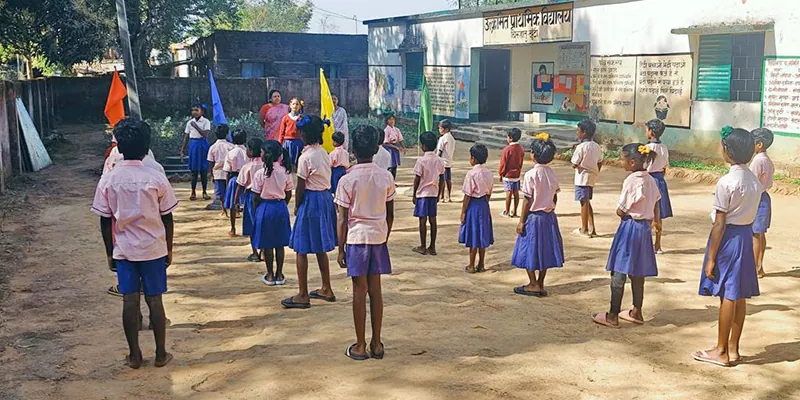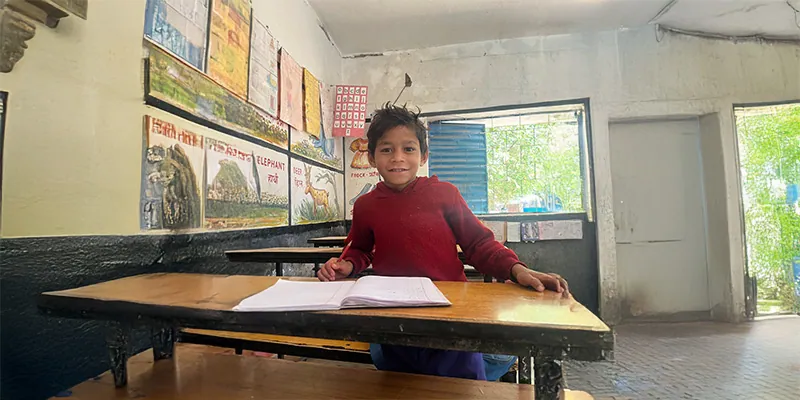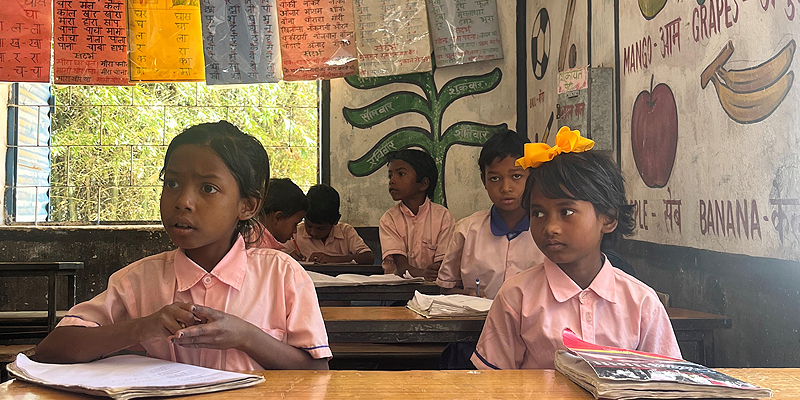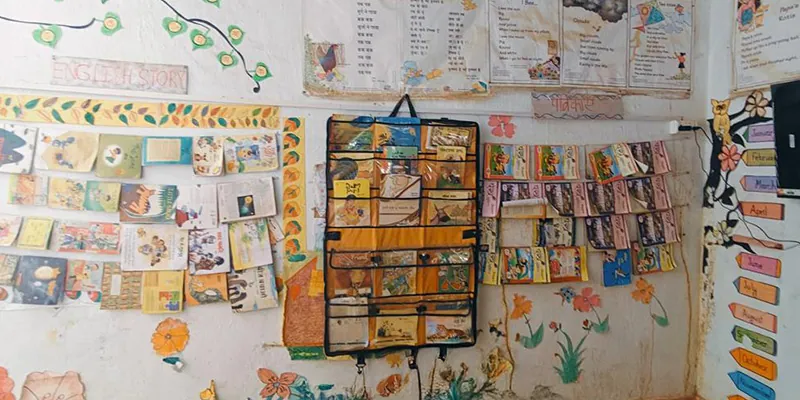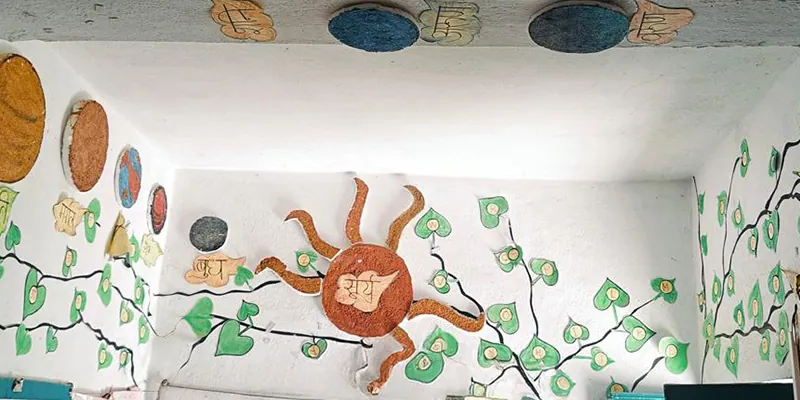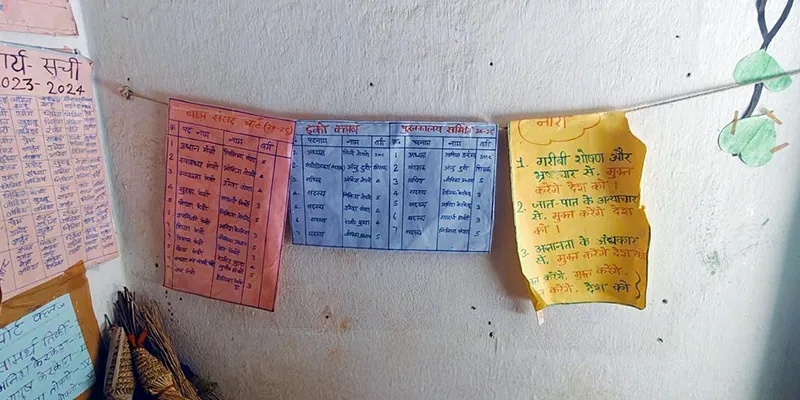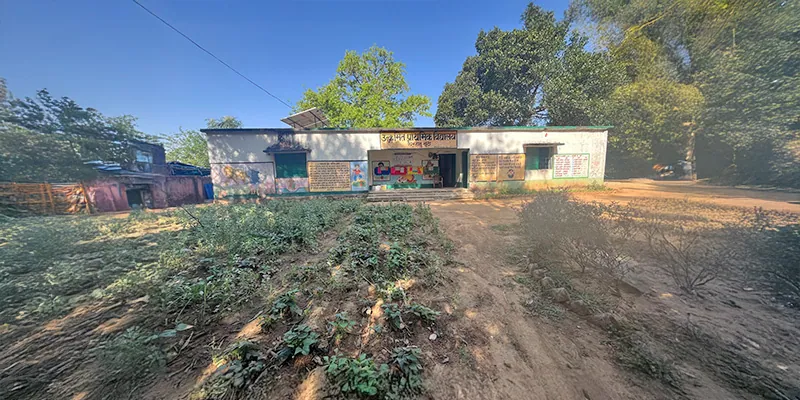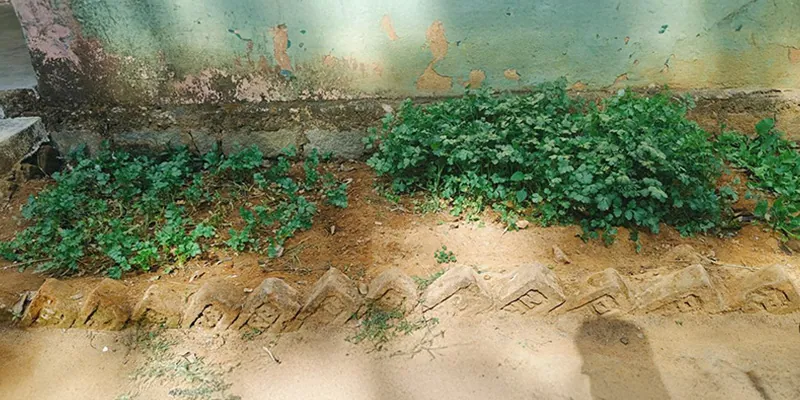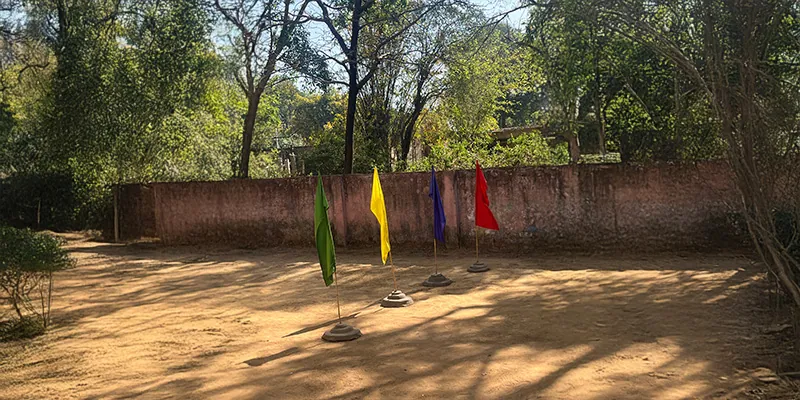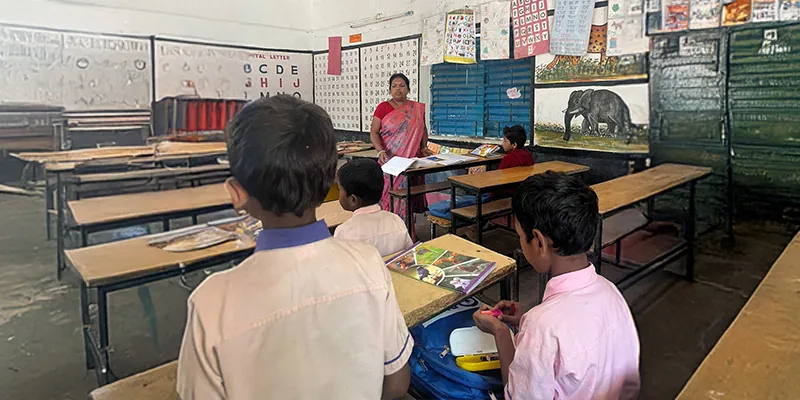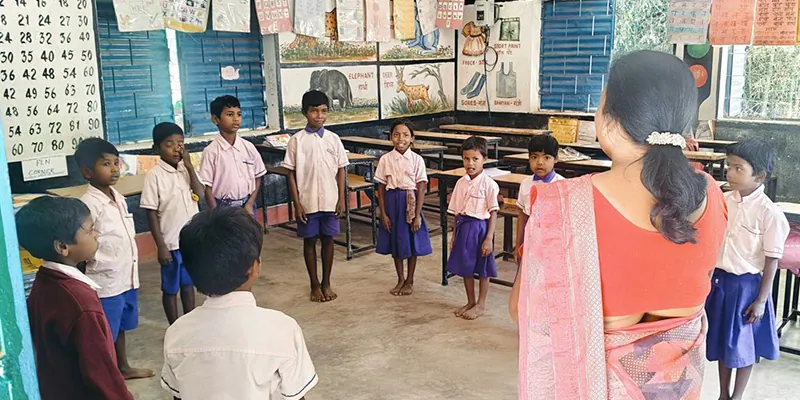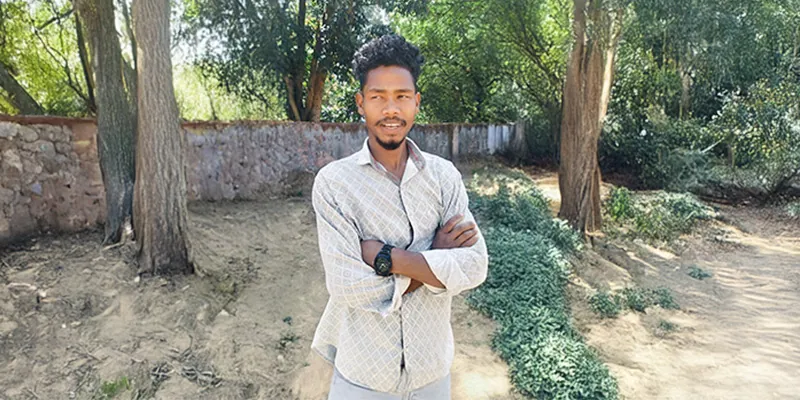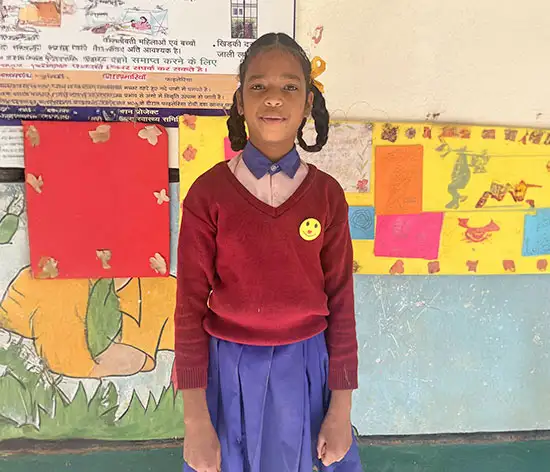
Nilima Sanga, 12, stands confidently in front of her class, instructing her fellow ministers. After all, she is her school’s Bal Sansad’s (Child Parliament) elected prime minister in Utkramit Prathmik Vidyalaya, Chiruhatu Village in Khunti, Jharkhand.
When she was admitted three years ago, she was a timid child who hardly spoke. She was in Class 2 then. Today, in Class 5, she is the pride of the school and the community.
At the heart of Nilima’s transformation is Anju Tuti, a para teacher from the neighbouring Rewa village.
Para teachers, many appointed in the early 2000s, are contract-based educators. They are often recruited with limited formal qualifications and are paid much less than other teachers. While recruitment norms have evolved, para teachers remain the backbone of primary education in many rural schools across Jharkhand.
Anju has been teaching at the school since 2001. Appointed at just 19, she has single-handedly nurtured generations of students, including Nilima’s father, all while overcoming significant challenges along the way.
“When Nilima joined, she was terrified. She wouldn’t utter a word,” Anju says. “As a teacher, my job is not limited to book lessons. I had to mould her into her best version. I kept talking to her, encouraging her, and figuring out topics that interest her. Slowly, I started giving her small responsibilities. She would open up a bit and do her tasks. That’s when I knew this child could lead.
“From crying all day and keeping mum to being the first to answer every question, Nilima is the pride of our school and a topper,” Anju Tuti beams.
Despite having limited resources and being the only teacher at her school for years, Anju’s efforts began to yield results, especially after Tata Trusts, through its associate organisation Collectives for Integrated Livelihood Initiatives (CInI), stepped in around 2017. Their support brought much-required assistance in provision of appropriate teaching resources, learning materials, training, and a stronger community-school connection.
“The Tata Trusts-CInI support has made teaching easier for me. I was even assigned a Learning Assistant (LA) for a while [between 2017 and 2020],” Anju adds. “Through workshops, training, materials and community engagement, the school grew in reputation and wasn’t just a place to learn but a place to thrive. I hope the support continues and grows in order to create more of Nilimas.”
Nilima’s dreams
As part of her ‘prime ministership’, Nilima leads school governance, manages duties, and even oversees the kitchen garden that her schoolmates maintain as part of their gardening ministry. She finds a lot of comfort in her teacher, Anju’s presence.
Nilima’s dreams extend far beyond her school walls. She wants to become a police officer, a desire inspired by her Sahiya Ma.
In tribal communities of Jharkhand, Sahiya is a deep-rooted tradition akin to lifelong friendship, marked by symbolic flower bracelets. Sahiya Ma is the mother of a dear friend bound through this bond. Nilima’s Sahiya Ma is a policewoman, someone she admires deeply.
“I like the uniform,” Nilima says shyly when asked what attracts her to a police job. Her favourite subjects are Maths and English. She loves reading, especially stories like Dadi ki Sari, which she narrates to us with excitement. She also likes playing football with friends, though their playground is confined within the school premises.
For a region once shadowed by unrest, this shift — from fear to service, from silence to leadership — is meaningful and powerful. Children who once saw uniforms with caution now dream of donning them with pride.
As Nilima looks ahead to secondary school, her eyes sparkle. “I’ll go to another school after this for secondary and then another for 10+2. And I won’t stop studying. But I want this school to keep doing better. More teachers to support my teacher would really help. And I want the garden green and hope other students keep planting trees even after I go.”
Nilima and Anju’s journey is a testament to the fact that with the right support, even the smallest institute of education can sow seeds for tomorrow's leaders.
